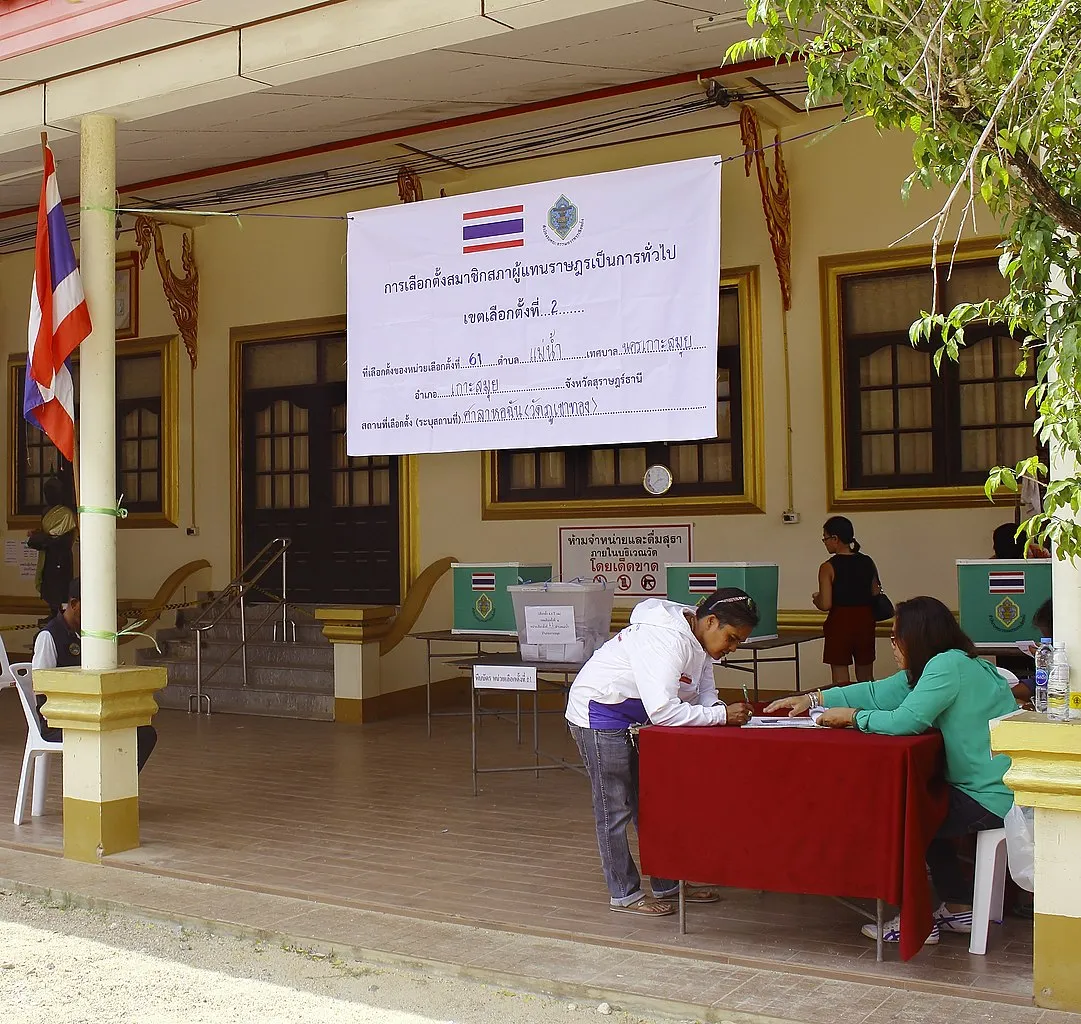Navigating the Waves of Democracy in Thailand's 2023 Election

Thailand is constantly washed by waves of democracy. These waves immerse the shore, only to eventually recede and expose the authoritarian underpinnings of the political system. The 2023 election, due on 7 May, is no different. A high tide of democratic politics covers the country right now, with seemingly open discussion and competitive elections. Parties organize big rallies with supporters and promise new policies to improve the life of citizens. Yet, if one waits out the tide, the undemocratic base of Thai politics will become visible, and this year’s elections, regardless of the results, might not be able to impose the long-term systemic change needed to sustainably advance democracy in Thailand.
Since 1997, with the approval of the first-ever Constitution drafted by a Constitutional Assembly in Thailand, Thai politics have orbited around the fight between an anti-establishment, populist movement, led by tycoon-turned-politician Thaksin Shinawatra, and the army. Since the 2001 electoral victory of Shinawatra’s party, the army has staged two coups d’etat—first, to unseat Shinawatra and his Thai Rak Thai Party’s (TRT) government in 2006. In 2014, after a brief period of democratic politics, the army again unseated the democratically elected government, this time led by TRT’s successor, Pheu Thai Party (PTP), with Shinawatra’s sister, Yingluck Shinawatra, as Prime Minister.
The leader of the last coup and Prime Minister since then, General Prayut Chan-o-cha, orchestrated the new Constitution with one idea in mind: make sure the unrest of the previous decade did not come back. For the military that meant one thing only: have the capacity to choose the Prime Minister. To retain that capacity under a façade democracy, the army was granted the control of the 250-member Senate, leaving only the House of Representatives as a democratically elected chamber. Both chambers vote for the Prime Minister, which implies that with the support of just 25% of the members of the 500-seat House of Representatives, the military can pick the next Prime Minister.
But what happens if they don’t have even that support? That is one of the likely scenarios in the May elections. Pheu Thai, now under the leadership of Thaksin Shinawatra’s daughter, Paethongtarn Shinawatra, is poised to achieve a clear victory. With the support of other opposition parties not aligned or controlled by the military, they might be able to achieve the magic number of 376 MPs needed to overcome the Senate and choose the next Prime Minister.
Yet even that will not move the needle enough to transform Thailand into a democracy. Since 2014 the army has solidified its grip on power, with the consent or even support of the King. The control the army wields upon the economy of Thailand precludes any civilian control and effectively locks in authoritarianism in the country. Indeed, by preventing the perseverance of civilian ruling in the country, the army protects its economic dominance. Additionally, the army has made clear it will not tolerate questions about its role, or the King’s role, in Thailand’s governance architecture. The repression of the 2020 student-led protests and the order of the Constitutional Court to dissolve the opposition Future Forward Party are two clear examples.
Finally, during the last years, General Prayut Chan-o-cha government has passed a long list of repressive laws, especially targeting potential online dissent and opposition. The government has used spyware on pro-democracy activists. It has also passed repressive legislation that allows the government to take down online content without a court order or that expands the government’s control of the internet.
The coming elections might bring more turbulence to politics and make slightly less comfortable the position of the military if their favourite candidate is not able to become Prime Minister. It will all depend on results and how the different parties with links or close to the military might negotiate. It might also carve out a bit more space for political debate. Yet, it will most likely not advance formal democratization in Thailand, which requires structural and not just superficial changes. Still, as the 2020 protests showed, the tide might be changing, and a young generation of Thais might not be satisfied with just occasionally getting their feet wet in democracy.




